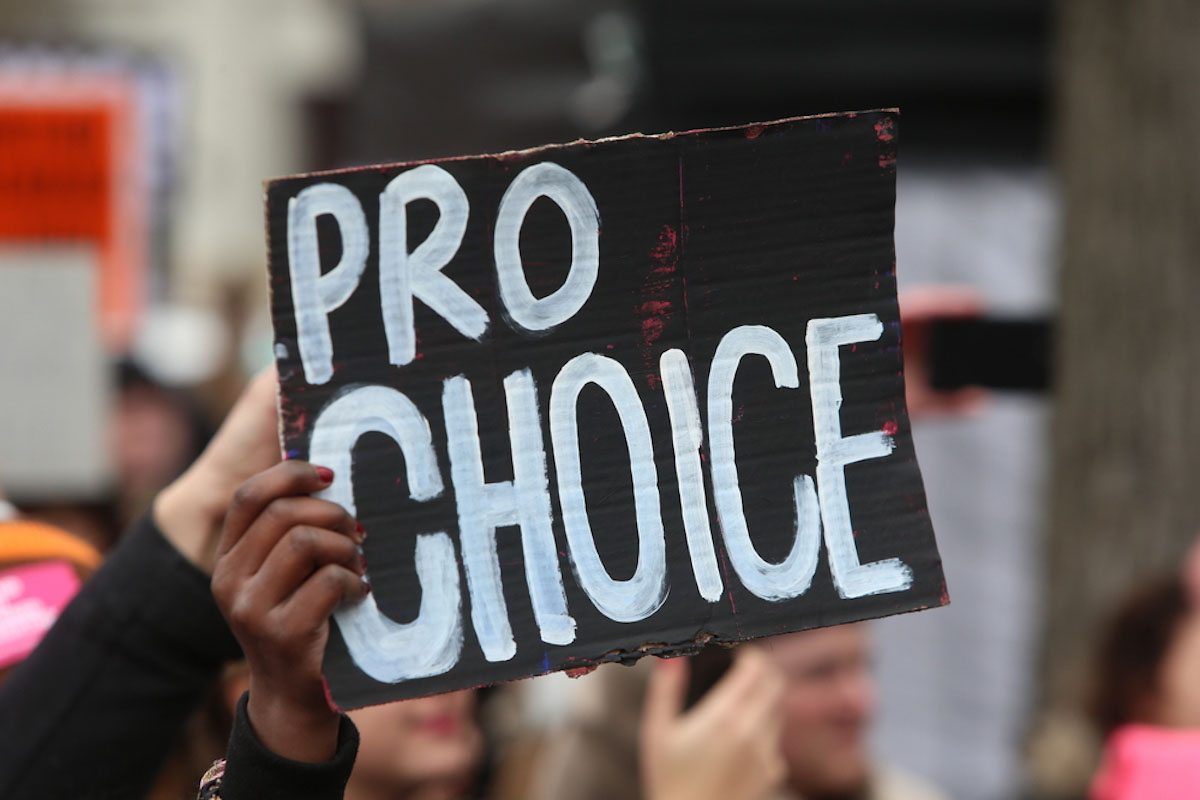While Midterm Election Night was a big night for women elected to office, one of the biggest attacks on women’s bodily autonomy in this country happened in Alabama last night.
On the ballot was HB 98 which, according to Rewire, proposed an amendment to the Constitution of Alabama “to declare and otherwise affirm that it is the public policy of the state to recognize and support the sanctity of ‘unborn life’ and the rights of ‘unborn children,’ including the right to life” in all manners and measures lawful and appropriate. The amendment also specifies that the constitution of Alabama does not protect the right to abortion or require the funding of abortion in any way with public money.
It passed last night.
Personhood laws like this attempt to establish that fertilized eggs, zygotes, embryos, and fetuses count as “persons” and are used to grant them full legal protection under the U.S. Constitution, including the right to life from the moment of conception.
It is very similar to the recently overturned Amendment in Ireland which granted the mother and fetus equal protection under the law. So as other nations, even traditionally religious countries like Ireland, are moving forward with their abortion legislation, we in America are seeing our already fought for laws and precedents slowly shattered from the local elections upward.
Originally when Roe v. Wade became the law of the land, in theory, the U.S. Supreme Court rejected the notion that a fetus is a person. Yet these types of legislation have been used by organizations like Personhood USA, an anti-choice group that has been pushing laws that want to protect the right to life of the ‘unborn’ by trying to push personhood onto them without saying the word. Personhood USA describes their movement as follows: “Personhood is a movement working to respect the God-given right to life by recognizing all human beings as persons who are ‘created in the image of God’ from the beginning of their biological development, without exceptions.”
Now that it has been passed in Alabama, by a margin of 59 percent to 41 percent, if Roe v Wade were to fall it would then lead to a complete ban of abortion in the state of Alabama.
While there is a chance that legislators and pro-choice advocates will fight this, with the conservative majority on the court there is still a risk that even bringing it to the Supreme Court might lead to more harm than good, which puts the women, especially poor women, of Alabama in a crisis.
According to the Guttmacher Institute, there were “9 abortion-providing facilities in Alabama in 2014, and 5 of those were clinics”, but “some 93% of Alabama counties had no clinics that provided abortions, and 59% of Alabama women lived in those counties.” Meaning it is already hard for women to obtain abortions in the state and most women have to drive far out of their way and in some cases, possibly to other states, in order to obtain an abortion.
Additionally, as of May 2018, all of these restrictions are already in play with it comes to the ability for a woman to gain an abortion in the state of Alabama:
A woman must receive state-directed counseling that includes information designed to discourage her from having an abortion, and then wait 48 hours before the procedure is provided. Health plans offered in the state’s health exchange under the Affordable Care Act can only cover abortion if the woman’s life is endangered, rape or incest. The use of telemedicine to administer medication abortion is prohibited. The parent of a minor must consent before an abortion is provided. Public funding is available for abortion only in cases of life endangerment, rape or incest. A woman must undergo an ultrasound before obtaining an abortion; the provider must offer her the option to view the image.
Besides Alabama, there were also abortion issues on the ballots of Oregon and West Virginia, and while it did pass in West Virginia, thankfully the voters in Oregon came out in opposition to it. This is just a reminder that even those who are feeling disenfranchised about the state of the two political parties should still go out to vote on these sort of measures that have a direct impact on the lives of the communities they live in.
(via Rewire, image: Shutterstock)
Want more stories like this? Become a subscriber and support the site!
—The Mary Sue has a strict comment policy that forbids, but is not limited to, personal insults toward anyone, hate speech, and trolling.—










Published: Nov 7, 2018 01:36 pm